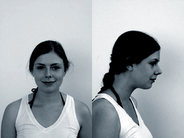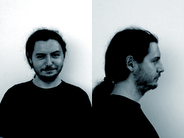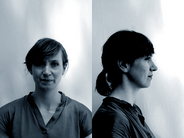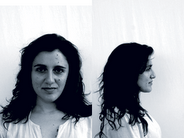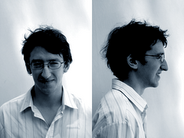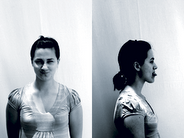Maximilien Robespierre (1758 1794) was the leader of the twelveman Committee of Public Safety elected by the National Convention, and which effectively governed France at the height of the radical phase of the revolution. He had once been a fairly straightforward liberal thinker - reputedly he slept with a copy of Rousseau's Social Contract at his side. But his own purity of belief led him to impatience with others.
The committee was among the most creative executive bodies ever seen - and rapidly put into effect policies which stabilized the French economy and began the formation of the very successful French army. It also directed it energies against counter-revolutionary uprisings, especially in the south and west of France. In doing so it unleashed the reign of terror. Here Robespierre, in his speech of February 5,1794, from which excerpts are given here, discussed this issue. The figures behind this speech indicate that in the five months from September, 1793, to February 5, 1794, the revolutionary tribunal in Paris convicted and executed 238 men and 31 women and acquitted 190 persons, and that on February 5 there were 5,434 individuals in the prisons in Paris awaiting trial.
Robespierre was frustrated with the progress of the revolution. After issuing threats to the National Convention, he himself was arrested in July 1794. He tried to shoot himslef but missed, and spent his last few hours with his jaw hanging off. He was guillotined, as a victim of the terror, on July 28, 1794.
But, to found and consolidate democracy, to achieve the peaceable reign of the constitutional laws, we must end the war of liberty against tyranny and pass safely across the storms of the revolution: such is the aim of the revolutionary system that you have enacted. Your conduct, then, ought also to be regulated by the stormy circumstances in which the republic is placed; and the plan of your administration must result from the spirit of the revolutionary government combined with the general principles of democracy.
Now, what is the fundamental principle of the democratic or popular government-that is, the essential spring which makes it move? It is virtue; I am speaking of the public virtue which effected so many prodigies in Greece and Rome and which ought to produce much more surprising ones in republican France; of that virtue which is nothing other than the love of country and of its laws. But as the essence of the republic or of democracy is equality, it follows that the love of country necessarily includes the love of equality.
It is also true that this sublime sentiment assumes a preference for the public interest over every particular interest; hence the love of country presupposes or produces all the virtues: for what are they other than that spiritual strength which renders one capable of those sacrifices? And how could the slave of avarice or ambition, for example, sacrifice his idol to his country?
Not only is virtue the soul of democracy; it can exist only in that government ....
Republican virtue can be considered in relation to the people and in relation to the government; it is necessary in both. When only the govemment lacks virtue, there remains a resource in the people's virtue; but when the people itself is corrupted, liberty is already lost. Fortunately virtue is natural to the people, notwithstanding aristocratic prejudices. A nation is truly corrupted when, having by degrees lost its character and its liberty, it passes from democracy to aristocracy or to monarchy; that is the decrepitude and death of the body politic....
But when, by prodigious efforts of courage and reason, a people breaks the chains of despotism to make them into trophies of liberty; when by the force of its moral temperament it comes, as it were, out of the arms of the death, to recapture all the vigor of youth; when by tums it is sensitive and proud, intrepid and docile, and can be stopped neither by impregnable ramparts nor by the innumerable ammies of the tyrants armed against it, but stops of itself upon confronting the law's image; then if it does not climb rapidly to the summit of its destinies, this can only be the fault of those who govern it.
From all this let us deduce a great truth: the characteristic of popular government is confidence in the people and severity towards itself. The whole development of our theory would end here if you had only to pilot the vessel of the Republic through calm waters; but the tempest roars, and the revolution imposes on you another task.
This great purity of the French revolution's basis, the very sublimity of its objective, is precisely what causes both our strength and our weakness. Our strength, because it gives to us truth's ascendancy over imposture, and the rights of the public interest over private interests; our weakness, because it rallies all vicious men against us, all those who in their hearts contemplated despoiling the people and all those who intend to let it be despoiled with impunity, both those who have rejected freedom as a personal calamity and those who have embraced the revolution as a career and the Republic as prey. Hence the defection of so many ambitious or greedy men who since the point of departure have abandoned us along the way because they did not begin the journey with the same destination in view. The two opposing spirits that have been represented in a struggle to rule nature might be said to be fighting in this great period of human history to fix irrevocably the world's destinies, and France is the scene of this fearful combat. Without, all the tyrants encircle you; within, all tyranny's friends conspire; they will conspire until hope is wrested from crime. We must smother the internal and external enemies of the Republic or perish with it; now in this situation, the first maxim of your policy ought to be to lead the people by reason and the people's enemies by terror.
If the spring of popular government in time of peace is virtue, the springs of popular government in revolution are at once virtue and terror: virtue, without which terror is fatal; terror, without which virtue is powerless. Terror is nothing other than justice, prompt, severe, inflexible; it is therefore an emanation of virtue; it is not so much a special principle as it is a consequence of the general principle of democracy applied to our country's most urgent needs.
It has been said that terror is the principle of despotic government. Does your government therefore resemble despotism? Yes, as the sword that gleams in the hands of the heroes of liberty resembles that with which the henchmen of tyranny are armed. Let the despot govern by terror his brutalized subjects; he is right, as a despot. Subdue by terror the enemies of liberty, and you will be right, as founders of the Republic. The government of the revolution is liberty's despotism against tyranny. Is force made only to protect crime? And is the thunderbolt not destined to strike the heads of the proud?
. . . Indulgence for the royalists, cry certain men, mercy for the villains! No! mercy for the innocent, mercy for the weak, mercy for the unfortunate, mercy for humanity.
Society owes protection only to peaceable citizens; the only citizens in the Republic are the republicans. For it, the royalists, the conspirators are only strangers or, rather, enemies. This terrible war waged by liberty against tyranny- is it not indivisible? Are the enemies within not the allies of the enemies without? The assassins who tear our country apart, the intriguers who buy the consciences that hold the people's mandate; the traitors who sell them; the mercenary pamphleteers hired to dishonor the people's cause, to kill public virtue, to stir up the fire of civil discord, and to prepare political counterrevolution by moral counterrevolution-are all those men less guilty or less dangerous than the tyrants whom they serve?
This text is part of the Internet Modern History Sourcebook.
























